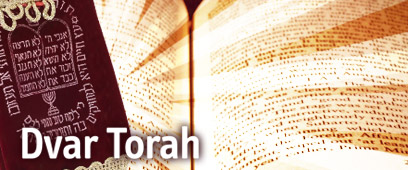
_a.jpg)
“Tomorrow shall be a festival of the Lord!” (Aaron)
“Headless ones! Do you not recall what miracles the Holy One performed for you?” (Hur)
Those are the reactions of the main characters in the Golden Calf drama. Two – Moses and Aaron – are quoted in the Bible, while the reaction of the third – Hur – is mentioned only in the midrash. I would like to examine two aspects of these reactions: To what extent does each reaction reflect the personality of the speaker? What can we deduce about each character’s style of leadership?
Aaron
Aaron was forced to assume the mantle of leadership when Moses ascended Mount Sinai, and bore responsibility for the orderly running of the Israelite camp.
When the people asked Aaron “Come, make us a god,” he should have refused out of hand. But as we see from the discussion in the Talmud (Sanhedrin 7a), the Sages saw Aaron as “a man who loved and pursued peace,” who preferred diplomatic resolutions to conflicts. Perhaps his desire to seek a compromise and avoid a confrontation caused him to falter and give in to the demand.
Rabbi Simon ben Manasya is quoted as being of the opinion that Aaron sought a compromise that would lead to a non-violent resolution of the situation. He compares Aaron’s effort to an attempt to achieve a compromise between two litigants. But Rabbi Simon ben Manasya is critical of Aaron’s efforts, because “if you have already heard the case and know in whose favor the verdict inclines, you are not at liberty to suggest a settlement.”
In other words, the case of the Golden Calf was clear, and Aaron should have stood firm and warned the inciters that they were on a path to idolatry and heresy. It would seem that Aaron’s avoidance of a direct confrontation in favor of compromise where no compromise was possible made him unfit for leadership.
Hur
Hur was Miriam’s son. Why does the midrash include him in this narrative? It appears to be the result of a comparison of two texts. When Moses ascends the mountain, God commands Aaron and Hur to remain behind to tend to the people (Exodus 24:14), but when Moses returns, he is met only by Joshua (Exodus 32:15ff).
Hur is absent and is never mentioned again. What happened to him? The midrash tells us that Hur tried to stop the inciters. In his words we hear that he demeans and rebukes them, reminding them how God has protected them. In the heat of their passion, the people are unwilling to listen. They rise up against him and kill him. Perhaps this influenced Aaron’s conduct and persuaded him to avoid a direct confrontation.
The Sages derive this from the verse “When Aaron saw this, he built an altar before it” (Exodus 32:5), which they midrashically interpret as referring to Hur by rearranging the vowels (i.e. va-yiven mizbei’ah – “he built an altar” – is read va-yaven mi-zavu’ah – “he understood because of the one who was killed”).
Why did Hur fail and why was he killed? Because he lacked the status, the esteem and the strength to stand before a rioting mob. His intention to lead and avert sin was admirable, but he lacked sufficient public support and political strength to succeed, and he paid the price of a weak leader who confronts and rebukes the people.
Moses
Moses is the captain responsible for bringing the people to safe harbor. In other situations, he succeeded in addressing the complaints of the Israelites without loss of life. But this time he adopts a hard line.
The Talmud (Sanhedrin 6b) describes Moses’ approach with the phrase “Let the law cut through the mountain!” There is no room for compromise; the law must prevail.
Acts that border upon idolatry must be punished to the fullest extent. In the past, Moses employed a variety of strategies – persuasion, miracles, a show of strength, and violence. For example, at Mara, when the people complained that they had nothing to drink, Moses sweetened the water.
In the Wilderness of Zin, when they complained that God had brought them to the desert to die, he brought them manna. But in the case of the Golden Calf, Moses resorts to drastic measures. The sinning is stopped, but at a horrific price of human lives. It is a powerful act of leadership, but perhaps too powerful.
To sum up, we can distinguish three styles of leadership.
Hur wanted to lead but his negligible political power led to his death at the hands of the mob. This is the leadership style of the political novice who does not understand that leadership is not just about rebuke, and that snares are often laid for those “who reprove in the gate” (Isaiah 29:21).
Aaron – according to the Sages – followed his characteristic non-confrontational strategy of compromise. In this case, it led him to help Israel sin. Aaron displays a consistent - perhaps overly consistent – approach that attempts to apply the same standards to every situation.
And what shall we make of the leadership style of Moses? He could have spoken and worked miracles rather than cause loss of life.
We can try to imagine what would have happened had he adopted a strategy of talking – “Listen you rebels” (Numbers 20:10) – or had he performed a miracle like the splitting of the sea, rather than embarking upon so deadly a path. Would the people have responded positively and repented? Or was the situation so grave that only by killing the guilty could the situation be controlled and the people be brought back from the brink?
Rabbi Shlomo Tucker is the Vice Dean of the Schechter Rabbinical Seminary















